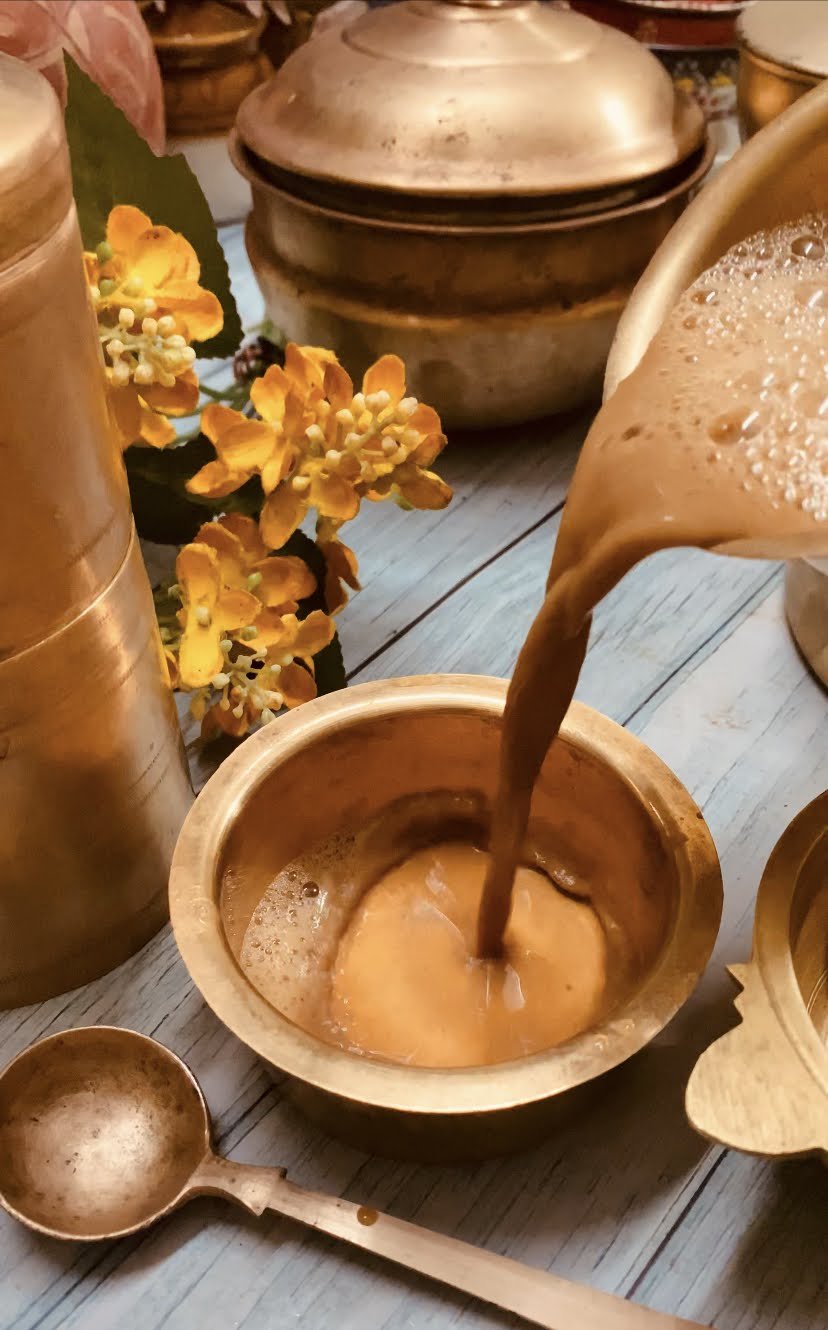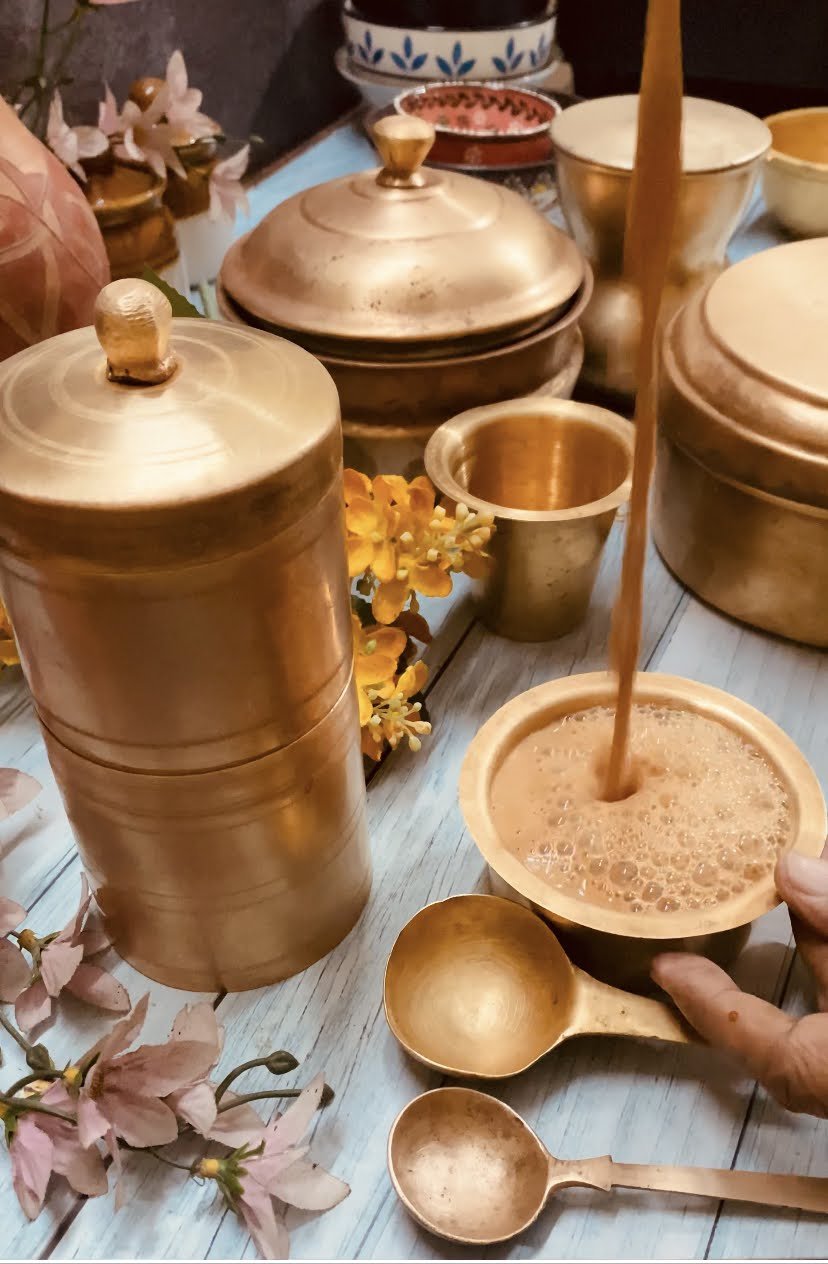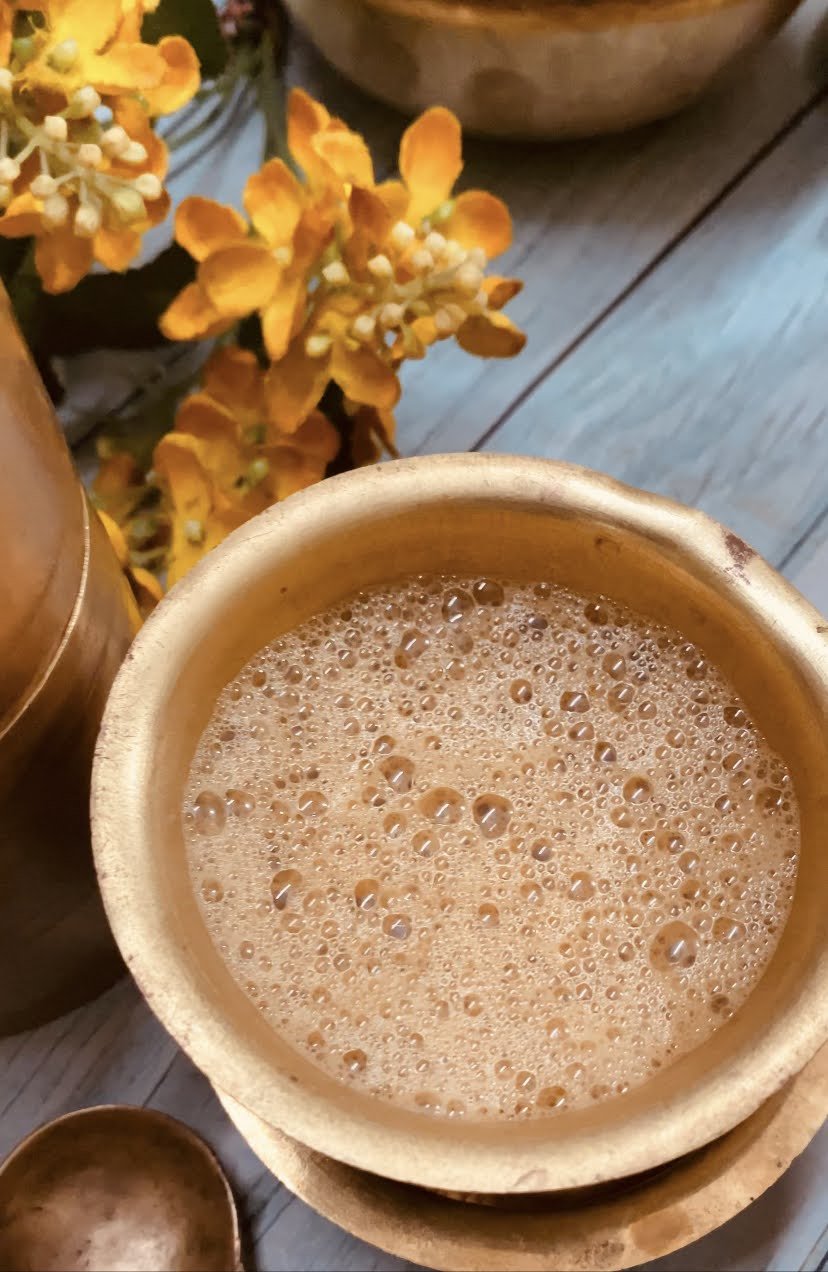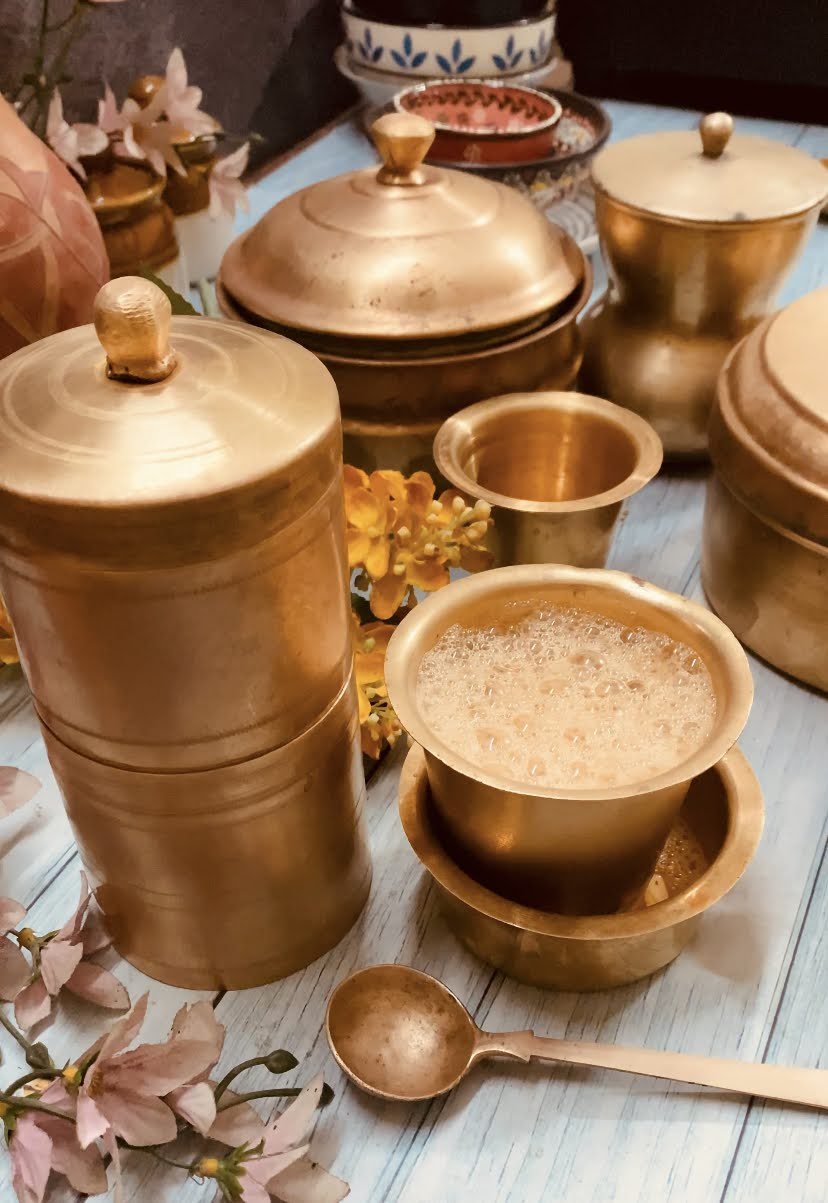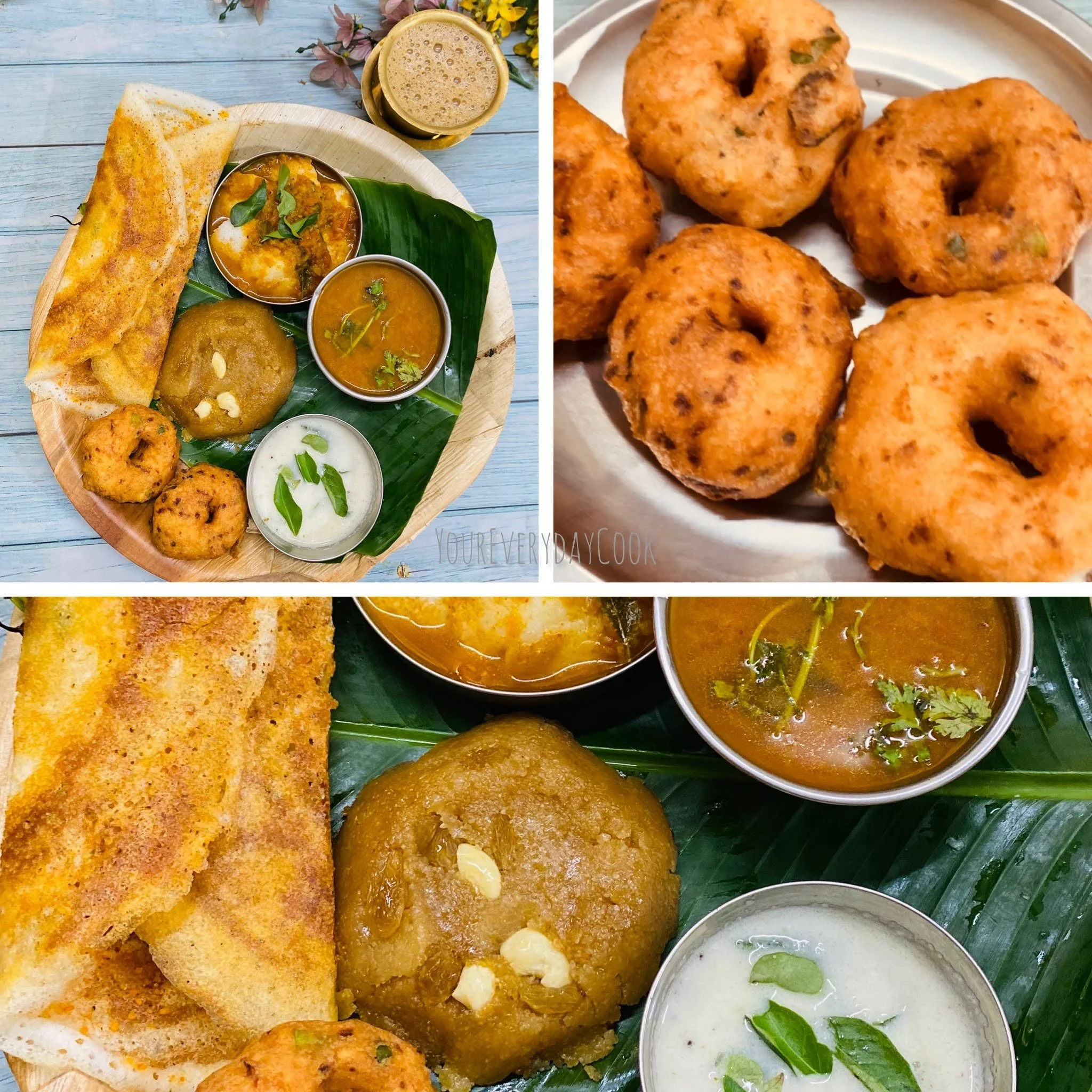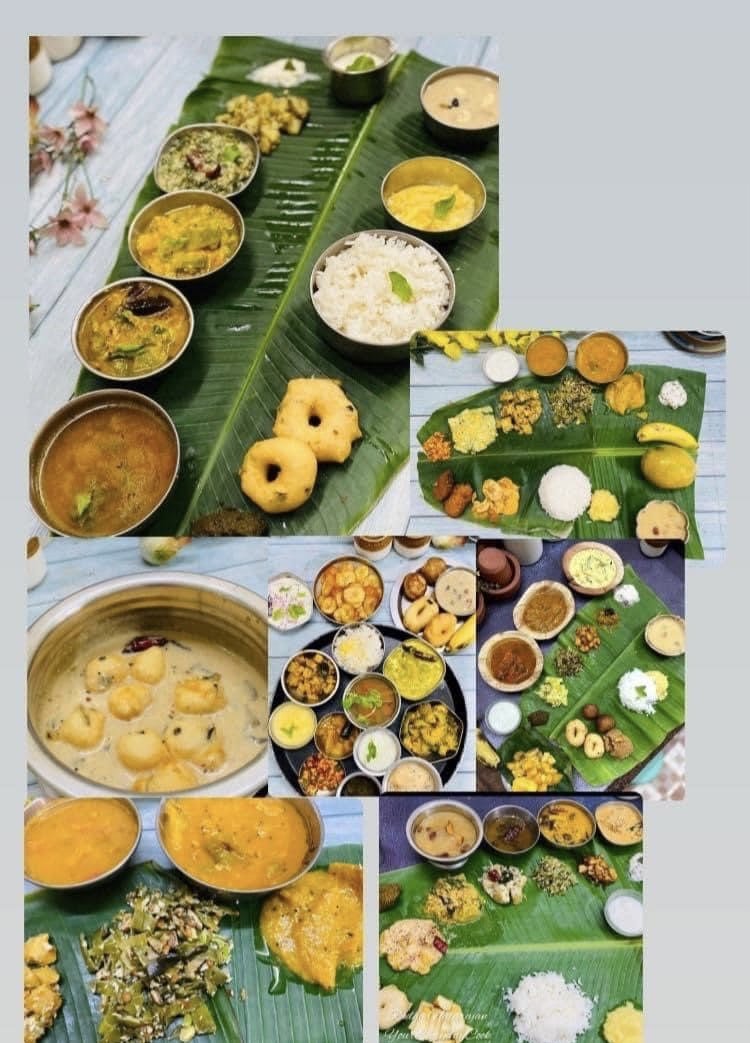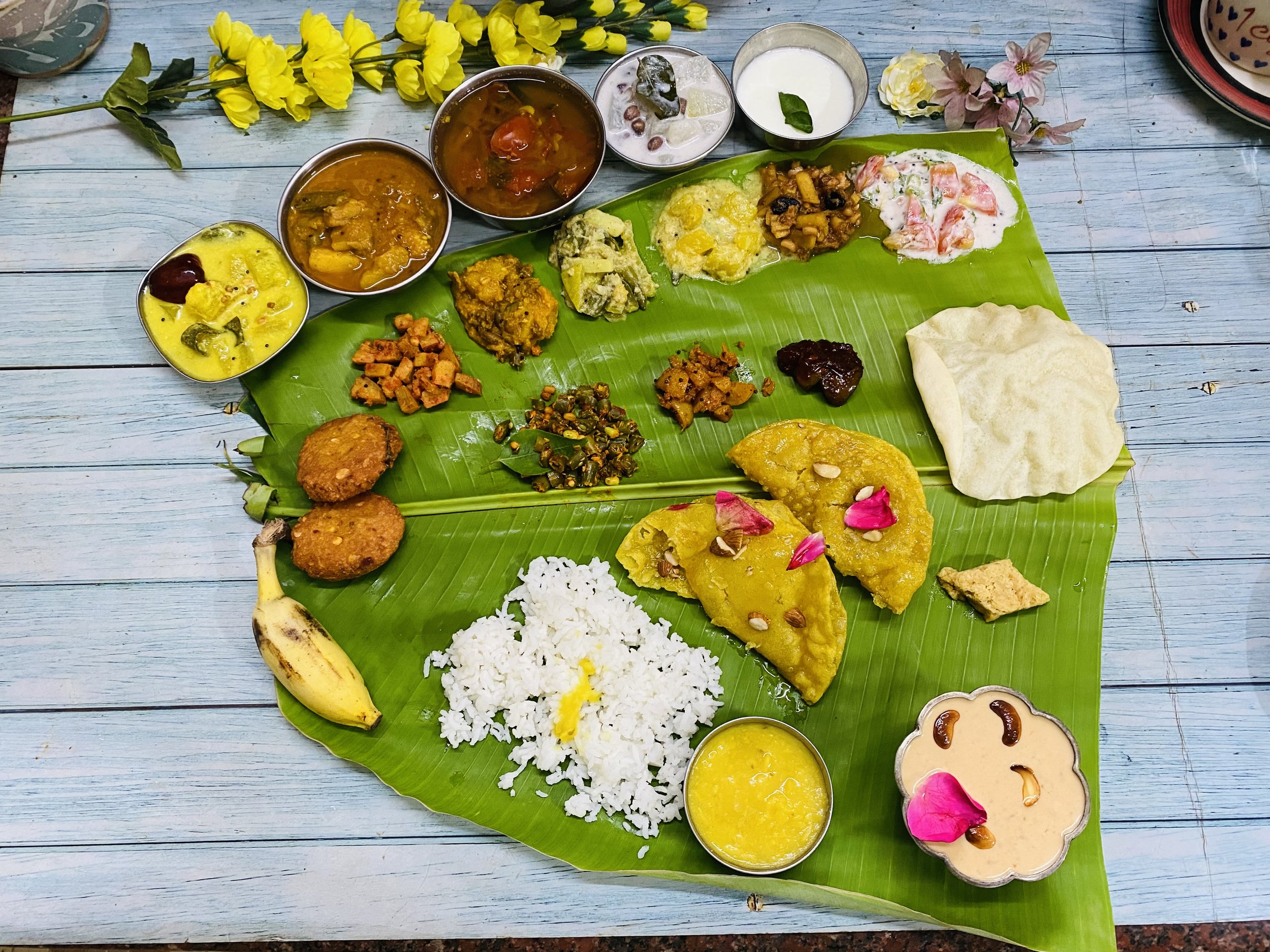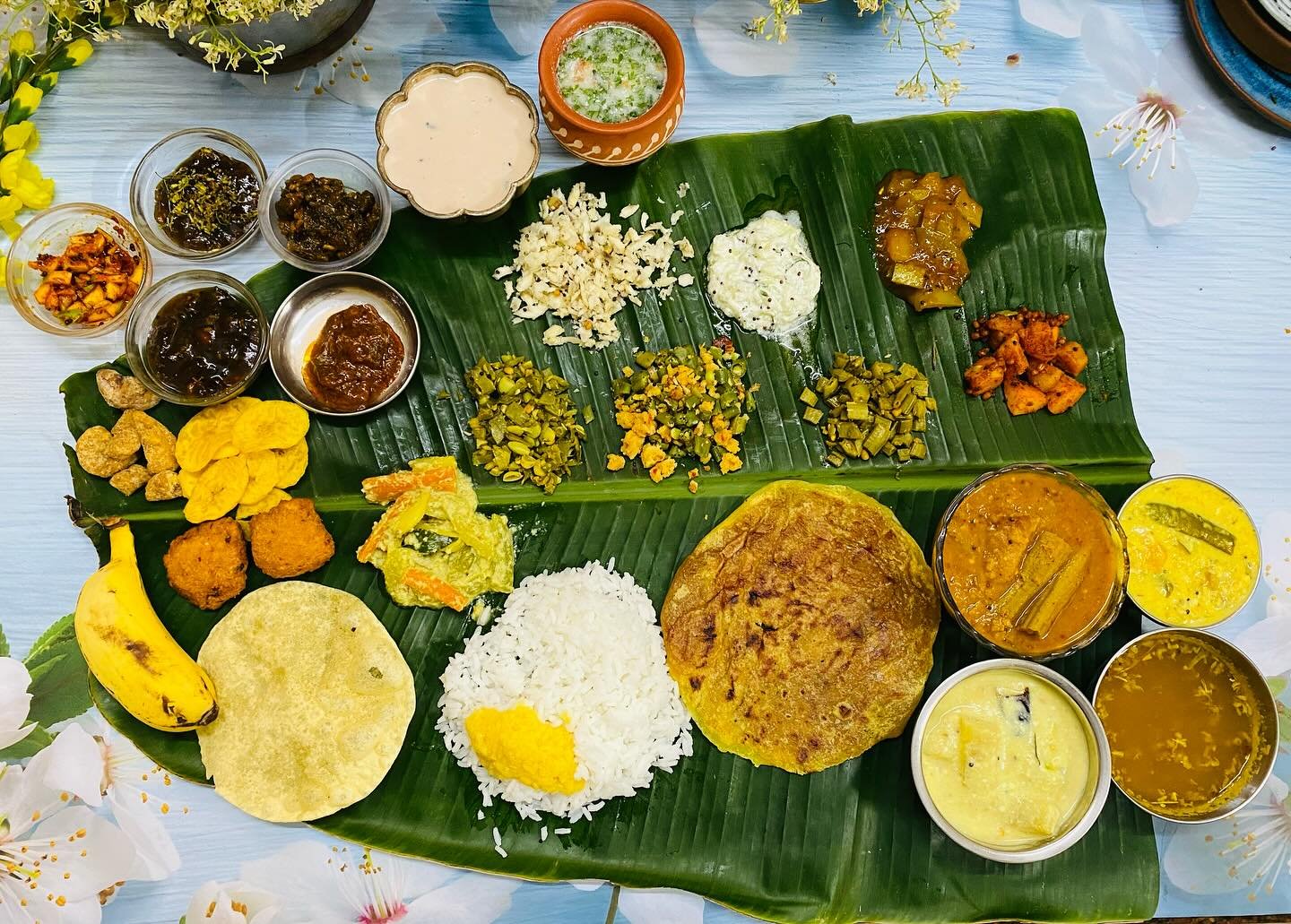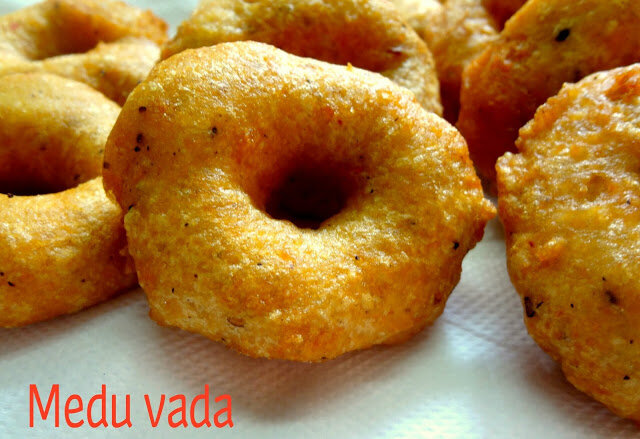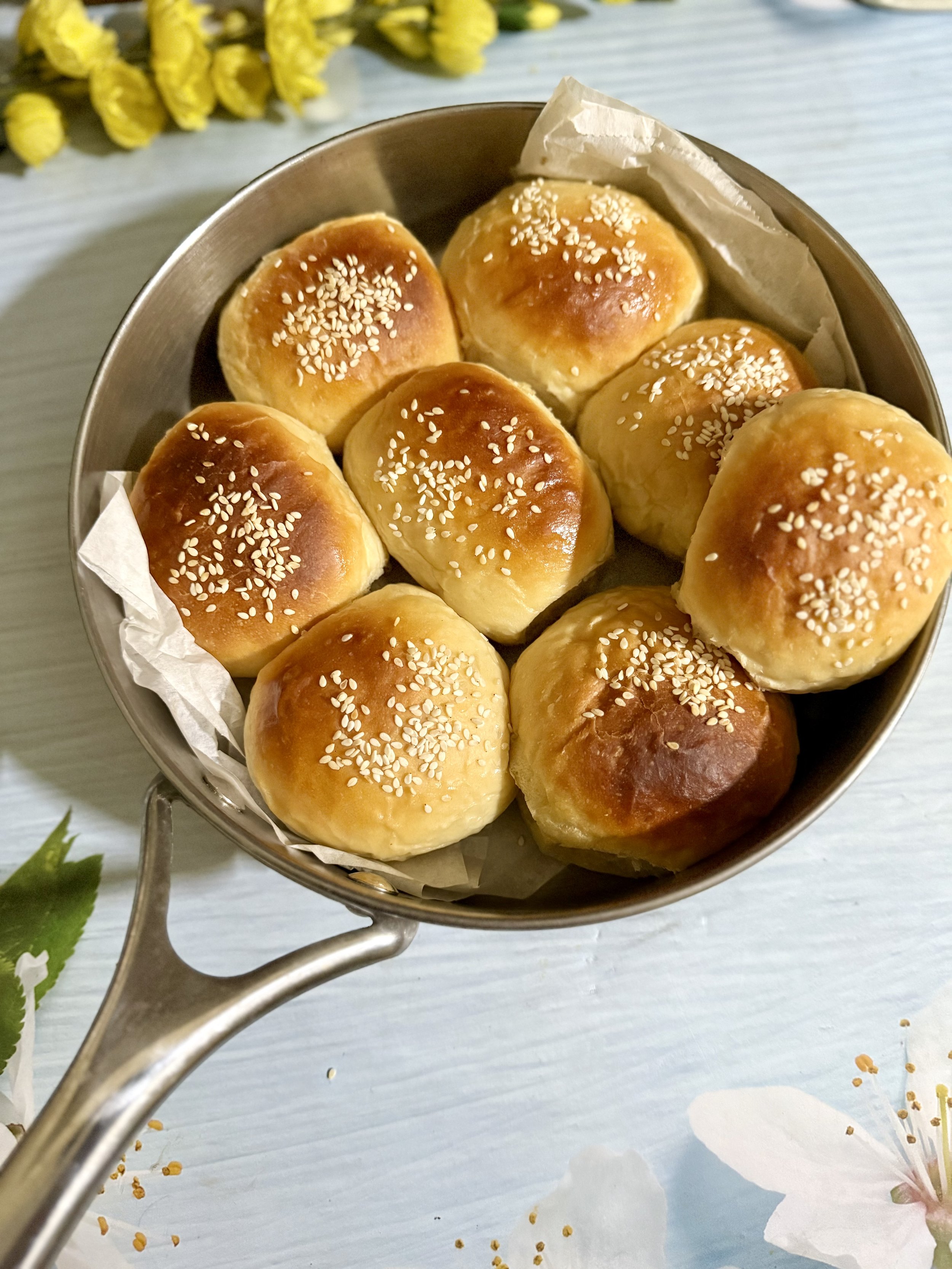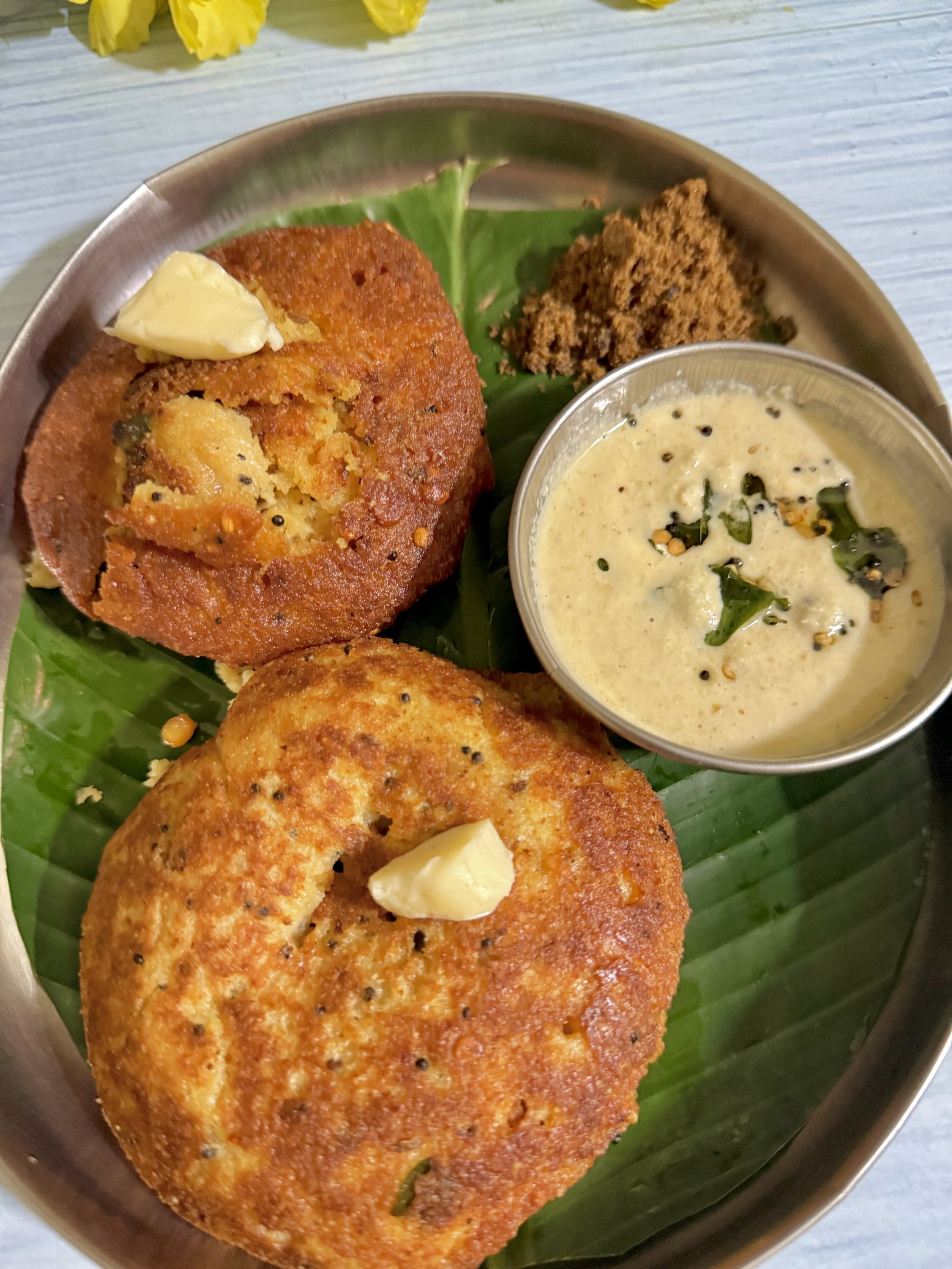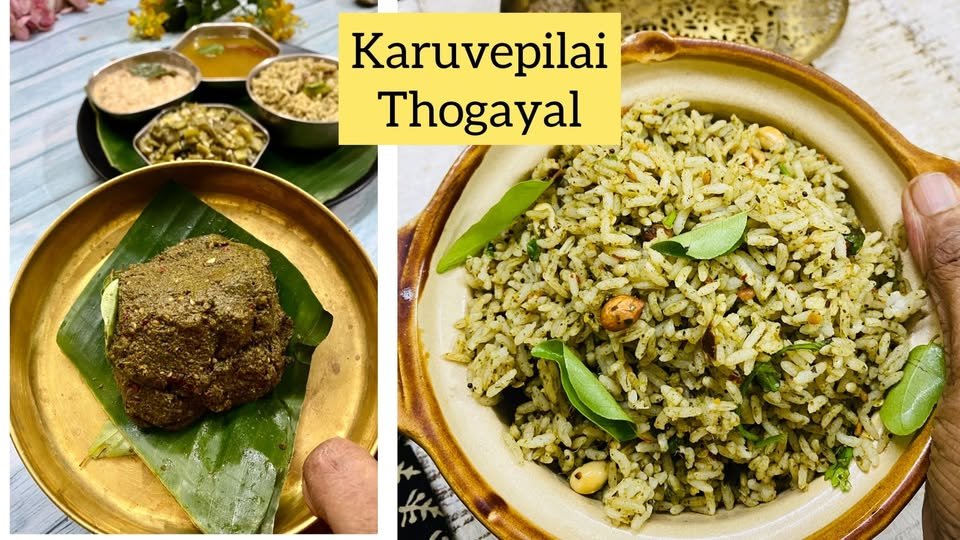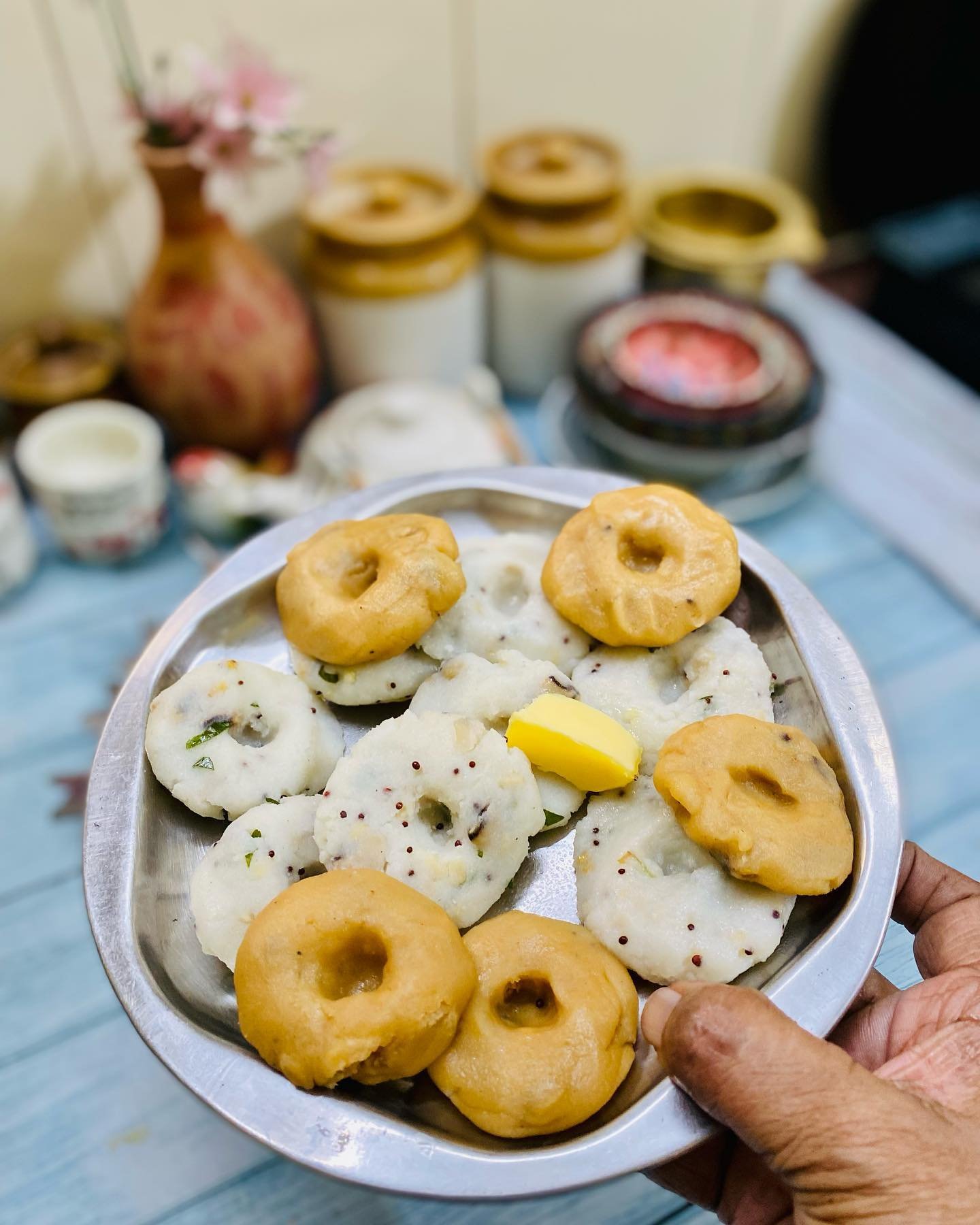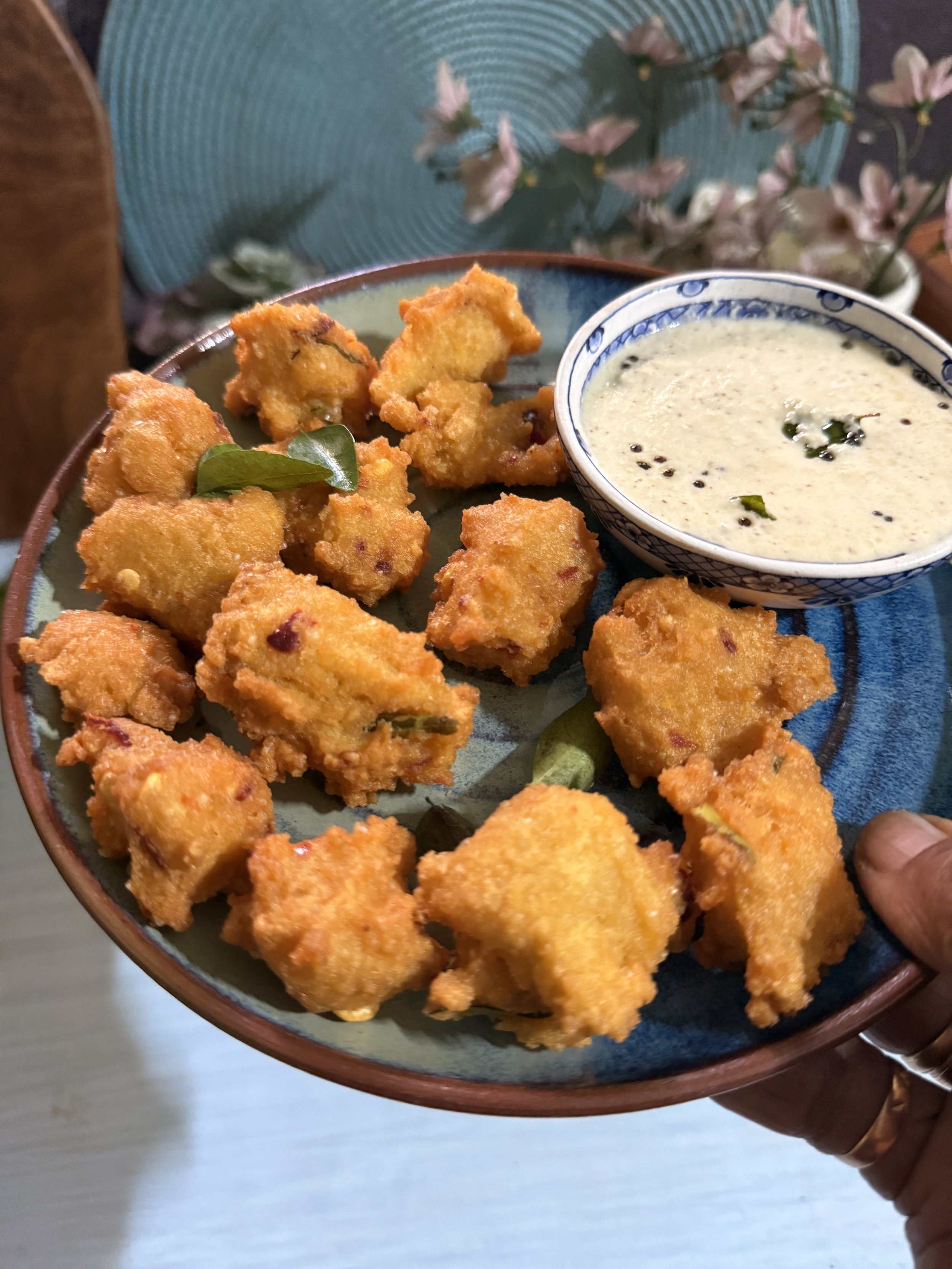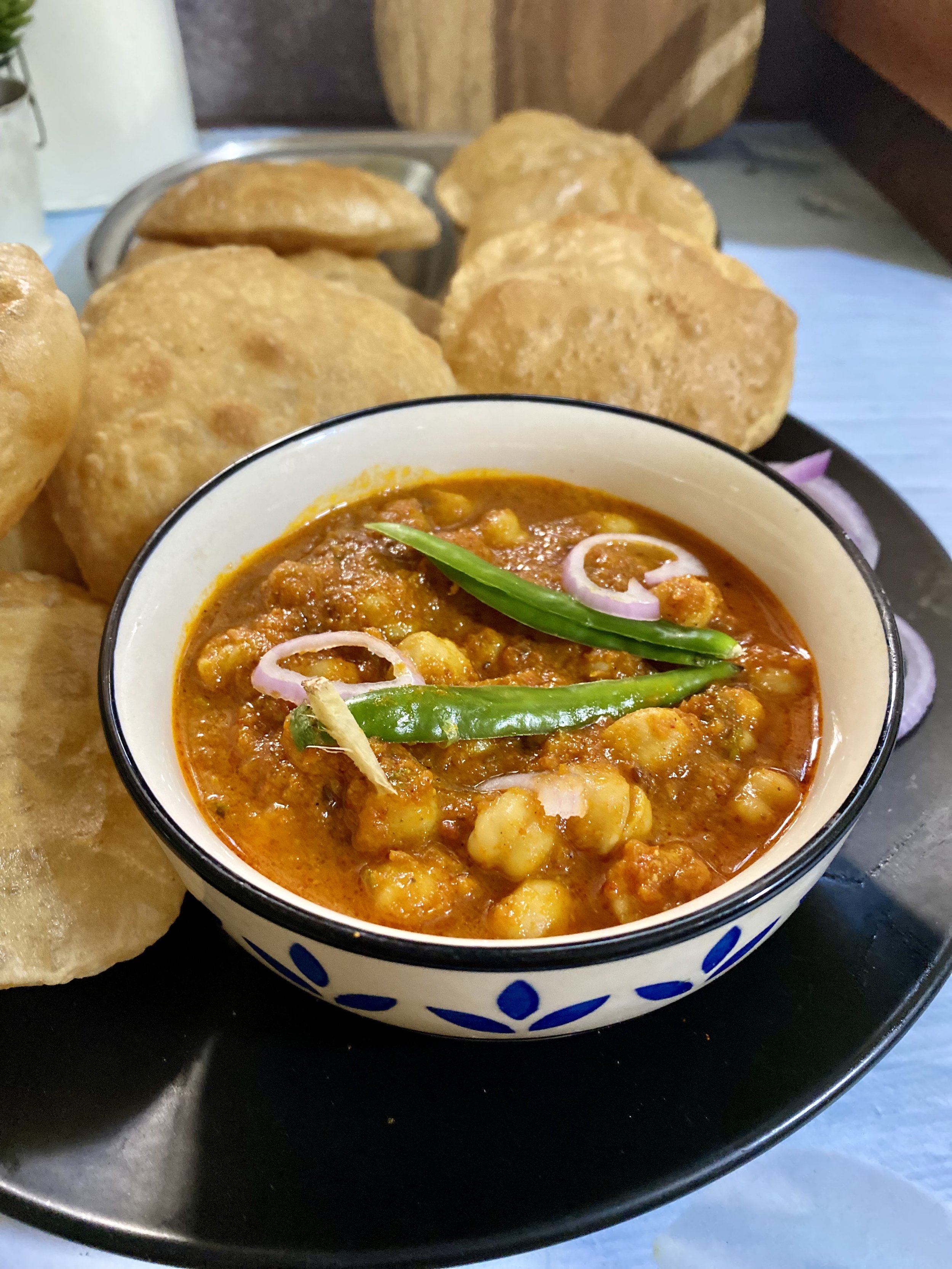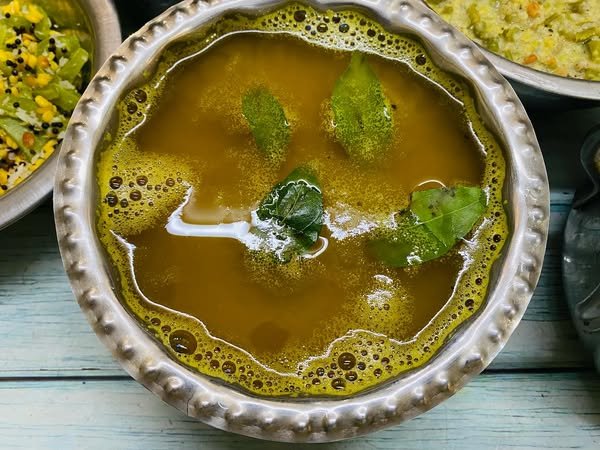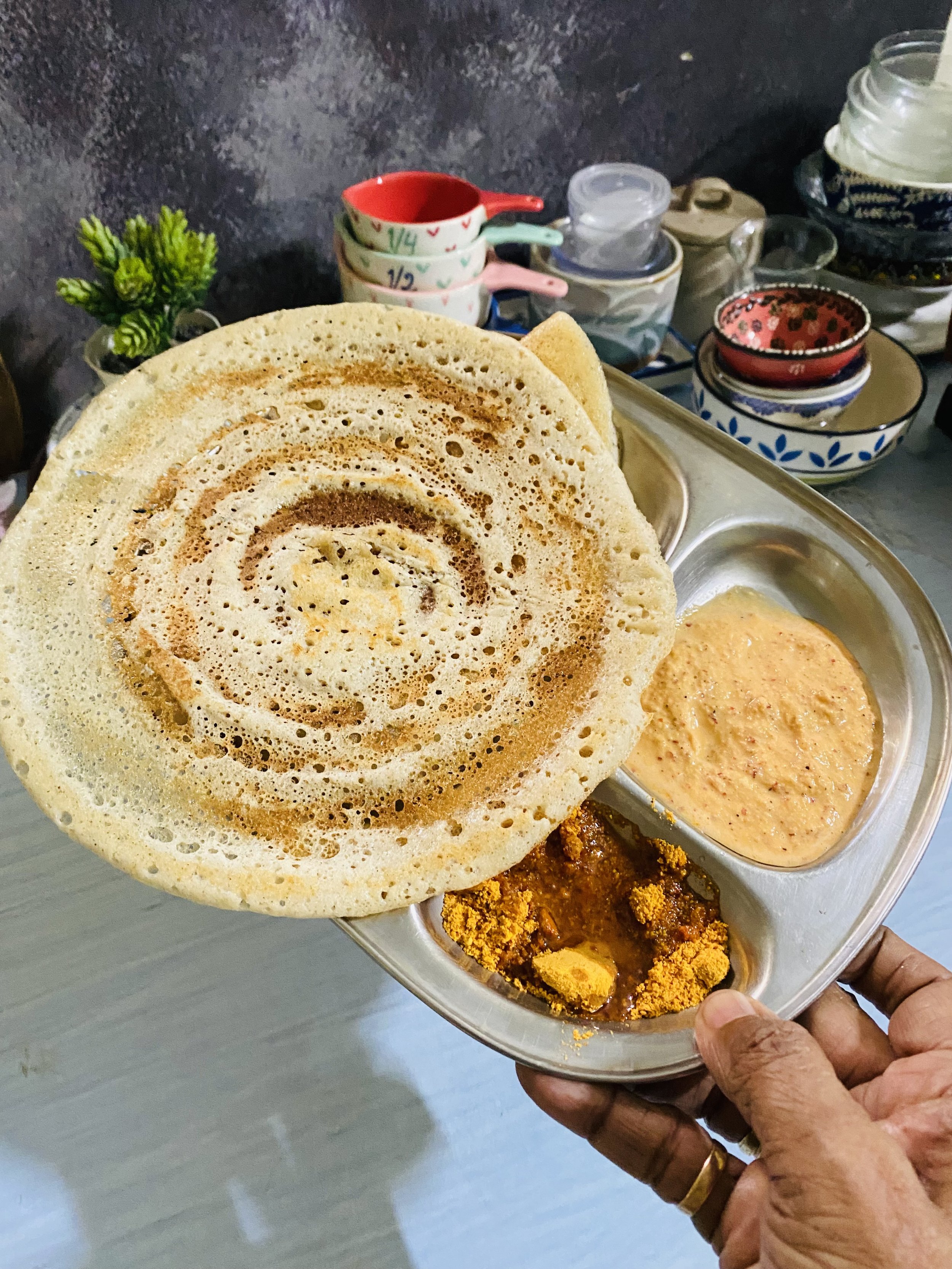Filter Kaapi/Coffee
Filter kaapi /coffee
Filter kaapi /coffee
Filter kaapi/filter coffee
Filter Kaapi is an emotion that is indescribable and everything depends on the aroma and taste when you take that first sip 😆
There are many explanations about why the filter Kaapi is also called Degree coffee .
Most speculated reason is that the ingredient chicory that is also added to coffee powder is pronounced as tikeri ! By locals . This word chicory is pronounced as Tikeri ! Later on became degree .
Another likely possible explanation was the purity of milk gave the word degree .
Milk certified as pure with was called degree milk owing to a mistaken association with the thermometer. It is claimed that coffee prepared with degree milk became known as degree coffee.
Another story is that in the 19 th century a British collector of Thanjavur liked the coffe served to him by a chef in Kumbakonam , he was so pleased that he decreed that in future all coffe be served in this manner .
Yet another explanation was the purity of milk was tested using a lactometer . The degree was marked on the coffee giving it the name of degree coffee.
The Decoction is made primarily from coffee beans (70-80%) and chicory (the other 30-20%). coffee powders have a fixed percentage of coffee-chicory combination , and you can customise your blend with preferred percentage of coffee and chicory .
However preparing a decent or an incredible perfect cup of Kaapi is not as difficult as it seems to many esp those who rarely drink but when they do drink they want perfection and that expectancy is fully justified 😁and not all hotels can deliver that perfect cuppa that leaves you totally satiated but will keep you craving for that fresh aroma that hits your nose when you take the tumbler to your mouth , our nose is the first to sniff the aroma and then the brain gets a kick if it is perfect .
Coffee/ kaapi connoseiurs will know what iam talking about . Hence in almost every south Indian household , the morning ritual must start in early hours esp deep South in Kumbakonam where it all starts , a strong coffee aroma lingers in the air and it kind of gets heady after a while .
Typically Tamil households will prepare the coffee decoction at least twice , each time fresh . One for the morning wake up kaapi and afternoon with the tiffin .
The aroma percolates first . A strong cup of Kaapi can make or break deals ! There is the famed Japanese tea ceremony , so also here in South or in TN to be more precise , preparation of that morning brew is no less than a ceremony . There are no shortcuts 😁but generally here is how it goes :
You need a good filter preferably brass .
Basic apparatus if you can call it that ! with two cups or two chambers , one above another .
It has a basic flat disc with perforations and a metal stem to hold looks like a flat umbrella , this we call the plunger for sake of understanding because we place it gently on the layer of coffee powder that has been added to the top cup .
Wash and clean thoroughly , then place the bottom portion of the filter with the perforation on direct heat for few seconds so that it is fully dry and well heated .
Reason being there won’t be any clogs in the filter and the decoction will drip uniformly in the lower portion of the filter .
Add 3 tbsp filter coffee powder .
Place the plunger on top of the powder and press lightly so that the powder is settled well .
Add hot water to the top of the filter , depending on how strong you want the decocotion, you can add less or more upto the top of the plunger .
Then cover the filter with its lid , and keep for few minutes .
When you notice sufficient decoction has been collected in lower portion of the filter , prepare coffee by adding the decocotion , hot milk and sugar .
It is customarily mixed by pouring the hot coffee into the flat cup called Davara from the tumbler couple of times to get a frothy efffect .
Also it mixes ingredients well .
Serve hot .
While the second time of pouring hot water into filter may yield another helping of the decoction , it wont be as potent as the first decoction . However coffee addicts will not mind and will go for it . it also depends on the blend of the coffee powder and how addicted you are to coffe so that the second round of notb so strong or not so fresh coffee will not bother you so much as you are barely out of the first .
Enjoy the morning brew !
Kumbakonam Degree coffee background . This was answered in a forum by an expert and native of Kumbakonam , he says “Kumbakonam is a town in Thanjavur District of Tamil Nadu. ‘
Degree' refers to lactometer which is used to find out the purity of milk,as the unit of this small instrument is in degrees. During the 1950s and 1960s one Panchami Iyer was running a hotel in Kumbakonam. He provided the best coffee to his customers. Coffee has three ingredients: Milk, decoction and sugar. Panchami Iyer used the best quality of milk, without mixing water to it. He had a number of cows at the backyard of his hotel. He brought cows from Delhi, Rajasthan and Madhya Pradesh to get the best quality of milk. He used to keep a lactometer on his table. Any customer who had doubts about the quality of milk could use the lactometer to find out the purity of milk. Panchami Iyer used only cow's milk and not baffalo' milk to prepare coffee.”
Then comes the decoction which was prepared by using the best quality coffee beans. It was rumoured that he used a mixture of 40 percent Plantation A variety of coffee beans, 40 percent of Plantation B and 20 percent chicory.The coffee beans were roasted at a particular temperature to get the best colour and aroma. He added limited quantity of sugar to coffee for better taste. This is Kumbakonam Coffee.”
Filter kaapi
Tiffin with Filter kaapi
Do watch this youtube video where i have shown how a filter kaapi is typically prepared . Subscribe to my channel for more videos posted by me regularly.


